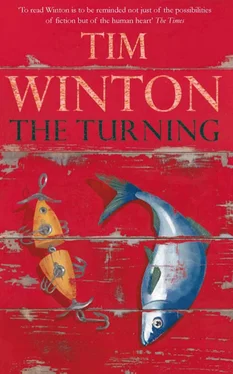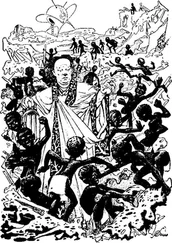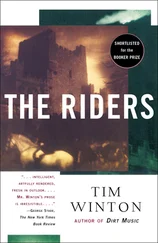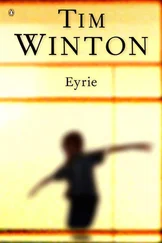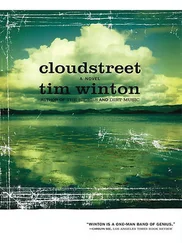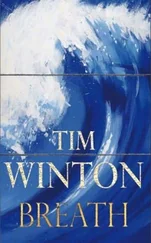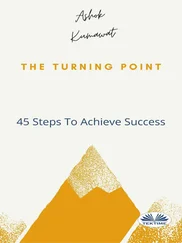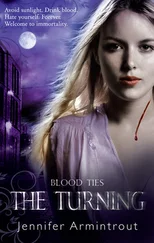Is it your mother?
Yes, I said.
What do you need?
She wants to see you.
He looked past me then and took a long breath. The dog whined and watched him.
You better come in. If you want to.
Will you come? I asked, angry at how sick with love I was at the very sight of him.
Of course, he murmured. If she asked.
She asked.
I have to. . I need to organize myself.
How long will it take?
I have to think.
It’s a long drive.
You’ll need a cup of tea.
He turned toward the dwelling and I followed him. By the time I reached the cement slab of his verandah my brogues were ruined. He directed me to an armchair beneath the sagging tin roof where I kicked off the shoes. I felt strangely short of breath and when I followed him indoors I was unprepared for how strongly the shack smelled of him. It was not an unpleasant odour, that mix of shaving soap, leathery skin and sweat, but the sudden familiarity of it overwhelmed me. It was the scent of a lost time, how my father smelled before the funk of antacids and the peppermints that never quite hid the stink of booze. I nearly fell into the wooden chair he pulled out for me. While he stoked up the old Metters stove and set the blackened kettle on it I tried to compose myself.
The shack was a one-room bushpole construction with a corrugated iron roof and walls. In three walls were mismatched timber windows whose panes were scrubbed clean. At one end stood an iron bed and a rough bookshelf and at the other was the wood stove set back in its tin fireplace. Between them where I sat was a deal table and two chairs. Black billies and pots hung from a wall. A steel sink was set into a jarrah frame. The hand-poured cement floor was swept. There were photographs of my mother and me above the bed and one of him in uniform. I felt him watch as I took them in. Myself at fourteen, all teeth and hair and hope. And my mother in her thirties, smiling and confident.
And Kerry? I asked despite myself.
The old man pointed back to the doorway where, above the lintel, a faded shot of my dead sister hung like an icon. A chubby toddler in a red jumpsuit.
How long have you lived like this?
Sober? he said, misunderstanding me. Fifteen years.
Fifteen years, I said.
He clamped his jaw and looked down but there was an involuntary pride in his posture as I repeated his words.
I have to see to things. Before I go.
Okay.
It’s too dangerous driving back in the dark, he said. There’ll be roos all over the road. Can you wait till morning?
I had hoped to head back today, I said, realizing as I did so that if we left now we wouldn’t reach the city until the early hours. After last night Mum would be in no fit state and the drive was probably beyond me.
You’re welcome to stay here. But there’s rooms back at the pub if you’d rather not.
I’ll stay, I said after something of a pause.
The kettle boiled. He made tea and cut up some damper. We sat a while blowing steam — he from his tin mug and me from the china cup he’d given me. I tried the damper with the butter he brought in from the kero fridge and it was good.
You coming like this, he said. It’s. .
It’s sudden, I said.
He nodded sadly as though that was not what he’d been about to say.
How do you live? I asked.
Don’t need much out here. Get the pension. I look after things, hold things for people.
Bob the Banker, I said trying not to sound ironic.
Yeah.
What things?
Oh, money. Gold. Valuables.
What people?
There’s a few blokes here and there still prospecting. Some of them just pretending these days. Often as not just drinking or going off their rockers and lying low. Old sandalwooders, fettlers, some strays and runaways. Don’t trust each other. Don’t trust emselves anymore. So they leave stuff with me.
They trust you, then.
Yes.
Why you?
The question affronted him but the old man seemed determined not to take offence.
Well, because I don’t drink. Because. . because I’m trustworthy.
Honest Bob, I murmured, ashamed at the bitterness in my voice. But it was hard to sit there and see him after so long, in the wake of such disappointment and creeping shame. I’d had years of boyhood bewilderment and then, once I was old enough to see it, a decade of fury at how my mother suffered. In the end there was only a closed-down resignation, the adult making-do that I’d grown into. And now I had to sit with him and hear him declare himself trustworthy.
Once upon a time it had been true. Honest Bob. He was straight as a die and what you saw was what you got. I believed in him. He was Godlike. His fall from grace was so slow as to be imperceptible, a long puzzling decline. Even during that time he was never rough or deliberately unkind. If he had been it would have been easier to shut off from him. He just disappeared by degrees before our eyes, subsiding into a secret disillusionment I never understood, hiding the drink from my mother who, when she discovered it, hid it from me in turn for fear I would lose respect for him. She turned herself inside out to protect him and then me. And at such cost. All for nothing. He ran away. Left us. I grew up in a hurry.
I was, my wife says, an old man at twenty-five. I felt poisoned by lies. So many subtle tiny doses over the years that something in me gave out. I was no longer capable of forgiveness. If Gail, my wife, hadn’t come along, I wonder what would have become of me. She has such a capacity to forgive. I doubt I could have reinvented myself by sheer force of will, though that would be my natural tendency. I have stumbled upon a good life. But my mother was too stubborn, too loyal, to move on. And now she was dying in that same state, fierce with hopeless love, and I was a breath away from screaming it all back in the old man’s face.
He drank his tea and the afternoon light slanted across the table between us. After a time he cleared his throat.
I have to see some people, he murmured. Before I leave. In case there’s any misunderstanding.
You want me to drive you?
Well, it would be quicker. It’s too mucky for the pushbike.
Alright, then. We’ll go now.
He brought me an old pair of Blundstones. They were soft with use and felt strange on my feet. The insoles were indented by his toes and sunk at the heel. We left the dog behind and slewed up muddy tracks for an hour or more, stopping well clear of humpies and dongas in the long shadows of diggings and ruins while the old man went in to consult people who were never more than silhouettes to my eye. Their dwellings were scraptin and ragwall. One bloke lived in an orange school bus that had sprouted lean-tos and outbuildings. While my father was in the bus with him I walked out through trenches and disused shafts to an abandoned hut. I was fed up waiting in the car, and the old place had caught my eye. On the dirt floor was a rusty bedstead. The hessian lining of the walls had come away to pool on the dirt. The single room was stacked with empty bottles and the tin fireplace was overflowing with ash that had set white and hard in the rain. On one bare pole a postcard was tacked. It featured a map of the state with the word SECEDE! superimposed on it in faded yellow. A man’s pants hung rotting on a chair. I’d been in some desolate rooms in my time but I never saw anything so melancholy.
We finished our rounds at dusk. I was completely lost and only my father’s directions got us home.
You hear about the royal commission? I asked as I drove.
Someone said it was on.
All their names are in code.
The old man said nothing.
You’re not curious?
It’s a long time ago, he murmured. It’s a shame to get this car dirty.
When we reached his place the dog came hurtling from the dark, sudden as memory.
Читать дальше
